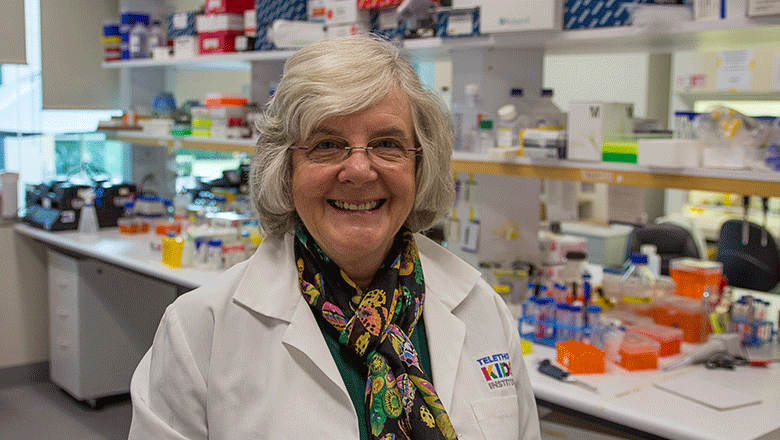Search

News & Events
Jennie Blackwell made a Fellow of the Australian Academy of ScienceProfessor Jenny Blackwell has been made a Fellow of the Australian Academy of Science, an honour reserved for the very best scientists in the country.
News & Events
Perth children needed for Swine Flu vaccine studyPerth researchers are about to begin testing of a new vaccine to protect against swine flu in children.
Research
Standardization of Epidemiological Surveillance of Invasive Group A Streptococcal InfectionsInvasive group A streptococcal (Strep A) infections occur when Streptococcus pyogenes, also known as beta-hemolytic group A Streptococcus, invades a normally sterile site in the body. This article provides guidelines for establishing surveillance for invasive Strep A infections. The primary objective of invasive Strep A surveillance is to monitor trends in rates of infection and determine the demographic and clinical characteristics of patients with laboratory-confirmed invasive Strep A infection, the age- and sex-specific incidence in the population of a defined geographic area, trends in risk factors, and the mortality rates and rates of nonfatal sequelae caused by invasive Strep A infections.
Research
Developing a prediction model to estimate the true burden of respiratory syncytial virus (RSV) in hospitalised children in Western AustraliaRespiratory syncytial virus (RSV) is a leading cause of childhood morbidity, however there is no systematic testing in children hospitalised with respiratory symptoms. Therefore, current RSV incidence likely underestimates the true burden.
Research
Risk factors associated with unsuccessful tuberculosis treatment outcomes in Hunan Province, ChinaGlobally, China has the third highest number of tuberculosis (TB) cases despite high rates (85.6%) of effective treatment coverage. Identifying risk factors associated with unsuccessful treatment outcomes is an important component of maximising the efficacy of TB control programmes.
Research
The Prevalence of HIV Infection in Minority Indigenous Populations of the South-East Asia and Western Pacific Regions: A Systematic Review and Meta-analysisA random effects meta-analysis was used to estimate the pooled prevalence of HIV infection within minority indigenous populations of the South-East Asia (SEAR) and Western Pacific Regions (WPR). Sub-group analyses were conducted, and the sources of heterogeneity explored through meta-regression. The majority of studies were undertaken in high HIV risk subpopulations.
Research
A novel statistical framework for exploring the population dynamics and seasonality of mosquito populationsUnderstanding the temporal dynamics of mosquito populations underlying vector-borne disease transmission is key to optimizing control strategies. Many questions remain surrounding the drivers of these dynamics and how they vary between species-questions rarely answerable from individual entomological studies (that typically focus on a single location or species).
Research
Prenatal influenza vaccination and allergic and autoimmune diseases in childhood: A longitudinal, population-based linked cohort studyFew studies have evaluated the effect of maternal influenza vaccination on the development of allergic and autoimmune diseases in children beyond 6 months of age. We aimed to investigate the association between in utero exposure to seasonal inactivated influenza vaccine (IIV) and subsequent diagnosis of allergic and autoimmune diseases.
Research
Antimalarials for children with Plasmodium vivax infection: Current status, challenges, and research prioritiesThe aim of this narrative review is to summarise efficacy and pharmacokinetic data for Plasmodium vivax in children. The burden of P. vivax malaria in children continues to remain a significant public health issue, and the need for improved treatment regimens for this vulnerable population is critical.
Research
Nafamostat Mesylate for Treatment of COVID-19 in Hospitalised Patients: A Structured, Narrative ReviewThe search for clinically effective antivirals against the severe acute respiratory syndrome coronavirus-2 (SARS-CoV-2) is ongoing. Repurposing of drugs licensed for non–coronavirus disease 2019 (COVID-19) indications has been extensively investigated in laboratory models and in clinical studies with mixed results.
